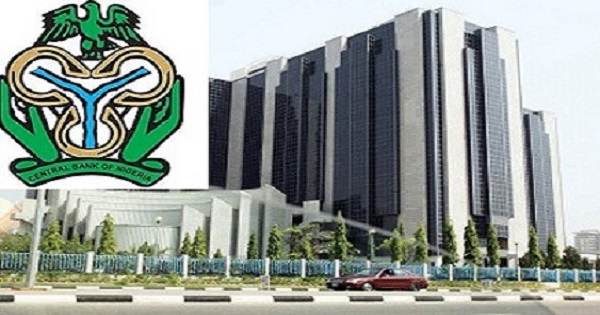E-Financial
Women to Get 60 Per Cent of CBN’s N220Bn MSMEs Fund

Federal government has announced plans to roll out a N2.3 trillion stimulus package and survival fund for Micro Small and Medium Enterprises (MSMEs) to stay afloat amid the economic challenges imposed by the pandemic.

The survival fund includes payroll support for three months, and guaranteed off-take scheme among others, all under the National Economic Sustainability Plan (NESP).
NAN reports that the Vice President Yemi Osinbajo, who also heads the Economic Sustainability Committee, disclosed this at the 2020 edition of the Micro MSMEs Awards which held via video conference
Speaking during the virtual conference, Osinbajo noted that the plan had been approved by the President and the Federal Executive Council to help small businesses pull through these challenging times.
“In that plan which essentially envisages an overall N2.3 trillion stimulus package, we made extensive provision for financial support to MSMEs, ranging from a guaranteed off-take scheme to a survival fund that includes a payroll support programme for qualifying businesses.
“The guaranteed off-take scheme seeks to provide support for MSMEs, manufacturing local products by guaranteeing the purchase from them of qualifying products such as face masks, hand sanitisers, Personal Protective Equipment (PPE) for medical workers among others” he noted.
These products will then be distributed to Nigerians, institutions, and entities that need them.
The provisions of the recently signed Finance Act also provides for “graduated company income tax rates with zero rates for small companies and a rate reduction for medium-sized companies” he added
To benefit from the scheme, MSMEs would have to go through a rigorous and painstaking verification process which will be based on certain criteria.
MSMEs that have between 10 to 50 staffs are qualified for this fund. The businesses must make their payroll available to the government for verification while applying for the fund. Once qualified, the MSMEs will be eligible to have their staff salary paid directly from the fund for 3 months.
The target beneficiaries of this scheme, according to the Vice President, will include private schools, hotels, road transport workers, creative industries and others.
According to Osinbajo, a provision of N200 billion would be made available to MSMEs in the priority sectors such as healthcare, agro-processing, creative industries, local oil and gas, aviation among others, in a scheme jointly run by the Bank of Industry (BOI) and Nigerian Export Import (NEXIM) Bank for export expansion.
He added that the Central Bank of Nigeria is also committed to creating a N100 billion target credit facility for MSMEs.
The Vice President said that the government had similarly focused interventions for MSMEs around the country, such as the tomato paste production plant in Kaduna state, the fashion hub in Lagos state, leather works cluster in Anambra state and the Carpentry cluster in the FCT, all of which are scheduled for 2020.
“In 2021, Edo, Ekiti, Katsina, Ogun, Bauchi and the Enugu States would commission shared facilities that will bring MSMEs together by cluster and provide shared equipment and resources and business support hub” he added.
Osinbajo congratulated the winners of the MSME awards who won cash and car prizes, for their ingenuity in starting and sustaining their businesses.
The event was attended by several state governors and their representatives, the FCT Minister Mallam Muhammed Bello, the Minister of State, Trade and Investment, Amb. Mariam Katagum, various heads of MDAS and captains of industry.
The Central Bank of Nigeria (CBN) had, few weeks ago, rolled out the N50 billion Targeted Credit Facility (TCF) stimulus package to MSMEs and other loan seekers.
The Apex bank also warned all loan seekers not to pay any amount as application processing fee, as there is no such requirement.
In a statement signed by Isaac Okorafor, director, Corporate Communications, CBN, it said “For the avoidance of doubt, there are clearly spelt out procedures for accessing the N50 billion TCF stimulus package to support households and Micro, Small and Medium Enterprises (MSMEs) affected by the COVID-19 pandemic, which are disbursed through the NIRSAL Microfinance Bank (NMFB).
E-Financial
Nigerian Banks End Years of Embargo, Resume Intl Transactions on Naira Cards

Nigerian banks have resumed international transactions on naira-denominated debit cards, marking a significant shift in banking operations for customers who rely on foreign payments.

This is coming nearly three years of suspension.
United Bank for Africa (UBA) and Wema Bank, in separate communications to their customers, announced the restoration of international payment services on their naira cards.
In a notice to its customers, UBA said the reactivation of international transactions on its premium naira cards aligns with its commitment to delivering improved and seamless banking experiences.
“We are pleased to inform you that all UBA Premium Naira Cards, including Gold, Platinum, and World variants, are now enabled for international transactions,” the bank stated.
“This means you can now use your Premium Naira Card for global payments — including online shopping, POS, and ATM transactions — with ease and flexibility. If you haven’t used your card recently, now is a great time to rediscover the convenience and prestige that comes with being a UBA premium cardholder.”
Similarly, Wema Bank announced that its customers can now make dollar payments on international platforms using their naira Mastercards.
“Your Wema Naira Mastercard just went global!” the bank said. “Now you can pay in dollars on all your favourite international platforms — Amazon, eBay, AliExpress, Netflix, Spotify, YouTube.”
The development marks a major relief for Nigerian customers who have had to rely on dollar cards or alternative payment methods since most banks suspended international usage of naira cards in 2021 due to foreign exchange scarcity.
E-Financial
Flutterwave Secures 20 more US Money Transmitter Licences

Flutterwave, Africa’s leading payments technology company, today announced the relaunch of its flagship remittance solution, Send App, across U.S. states following its newly acquired Money Transmitter Licences (MTLs).

This comes after Flutterwave secured 20 additional MTLs in the U.S., adding to the 14 licenses the brand has held since 2023.
Altogether, this achievement raises Flutterwave’s total number of direct licenses to 34, allowing the company to operate across many U.S. states and territories without partners or intermediaries.
Users in the U.S. can now send money to Nigeria, Ghana and Egypt, unlocking new remittance corridors that were previously unavailable.
Alongside this expansion, the onboarding process has been streamlined with a quick ID check, making it faster and easier for new users to get started.
Additional improvements include optimised payment support for US-issued Visa and Discover cards, enhanced security measures to safeguard transactions and maintain compliance, and improved in-app flows for a simpler, more efficient sending experience.
This return also highlights Flutterwave’s commitment to delivering a seamless, secure, and regulatory-compliant user experience for all Send App customers in the U.S. Users can now send money from DC, Georgia, Maryland, North Carolina, Michigan, South Carolina, Tennessee.
Other U.S. states and territories where Send App by Flutterwave supports outward remittances include Alaska, Arizona, Arkansas, Delaware, Idaho, Illinois, Indiana, Iowa, Louisiana, Maine, Minnesota, Mississippi, and Missouri, Nebraska, New Hampshire, New Mexico, North Dakota, Oklahoma, Oregon, Puerto Rico, Rhode Island, South Dakota, Utah, Washington, West Virginia, Wisconsin, and Wyoming.
Commenting on the relaunch, Olugbenga “GB” Agboola, Flutterwave Founder and CEO, said, “By expanding our reach and enhancing our services, we are empowering millions of Africans in the U.S. to maintain strong financial ties with their home countries, support their families, and contribute to economic development across the continent. Additionally, we are staying true to our core mission of bridging Africa with the global economy and vice versa.”
Earlier this year, Flutterwave integrated Swap into Send App for seamless FX transactions and strengthened its services in Ghana by securing approval for inward remittance from the Bank of Ghana.
E-Financial
Court Affirms NIBSS Authority to Manage BVN

Federal High Court in Abuja on Friday affirmed the authority of the Nigeria Inter-Bank Settlement System (NIBSS), to manage the Bank Verification Number (BVN), database across the country, in line with the Central Bank of Nigeria (CBN), Act and other relevant banking laws.

This is according to a judgment delivered by Justice James Omotosho on Friday.
Wolemi Esan, senior advocate of Nigeria, NIBSS’s counsel, and Kofo Abdulsalam-Alada, lead counsel for the CBN, among others, had sought a restraining order to prevent any institution in Nigeria from challenging the agency’s statutory authority to maintain and manage the BVN database.
This comes as NIBSS had alleged that Digital Rights Lawyers Initiative filed multiple suits, either directly or through proxies, challenging its authority to manage the BVN database and claiming that such management violates constitutional privacy rights.
However, Justice Omotosho, delivering his judgment, said the BVN does not infringe on the constitutional right to privacy.
“The initiative does not infringe on the constitutional right to privacy but rather serves as a necessary tool for safeguarding public interest and enhancing financial security.
“NIBSS has the power to manage the BVN,” the judge said, citing relevant CBN laws.
“The court grants the reliefs of NIBSS as prayed,” he stated.

 Telecom1 day ago
Telecom1 day agoMTN Nigeria Debuts Game-Changing CPaaS Platform at NextNow Forum

 Telecom2 days ago
Telecom2 days agoNCC Approves MTN, 9Mobile Roaming Collaboration Deal

 E-Financial1 day ago
E-Financial1 day agoNAICOM Issues New Licenses to SanlamAllianz Life, General Insurance

 E-Financial2 days ago
E-Financial2 days agoWorld Bank Approves Extra $65m for Nigeria’s SPESSE

 E-Financial1 day ago
E-Financial1 day agoGTCO to Become First Nigerian Bank to List on London Stock Exchange

 News1 day ago
News1 day agoAMCON Confirms ₦100Bn Sale of Ibadan DisCo Amid Legal Disputes

 E-Business1 day ago
E-Business1 day agoDomain of Deception as Attackers Deploy Spyware Under Guise of Legal Threats

 E-Financial2 days ago
E-Financial2 days agoEcobank Taps Google Cloud to Deepen Financial Inclusion

























